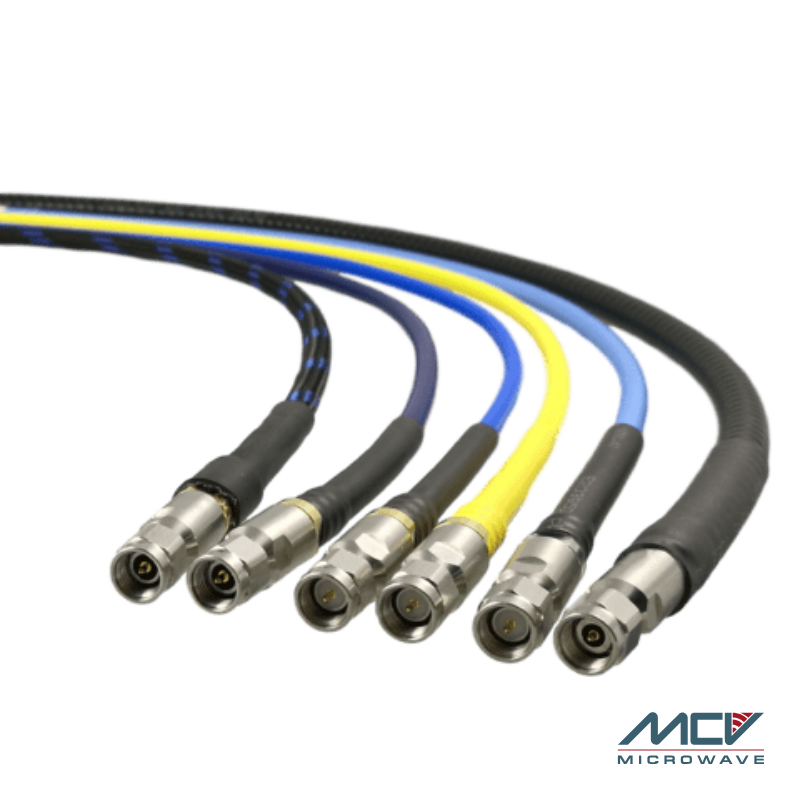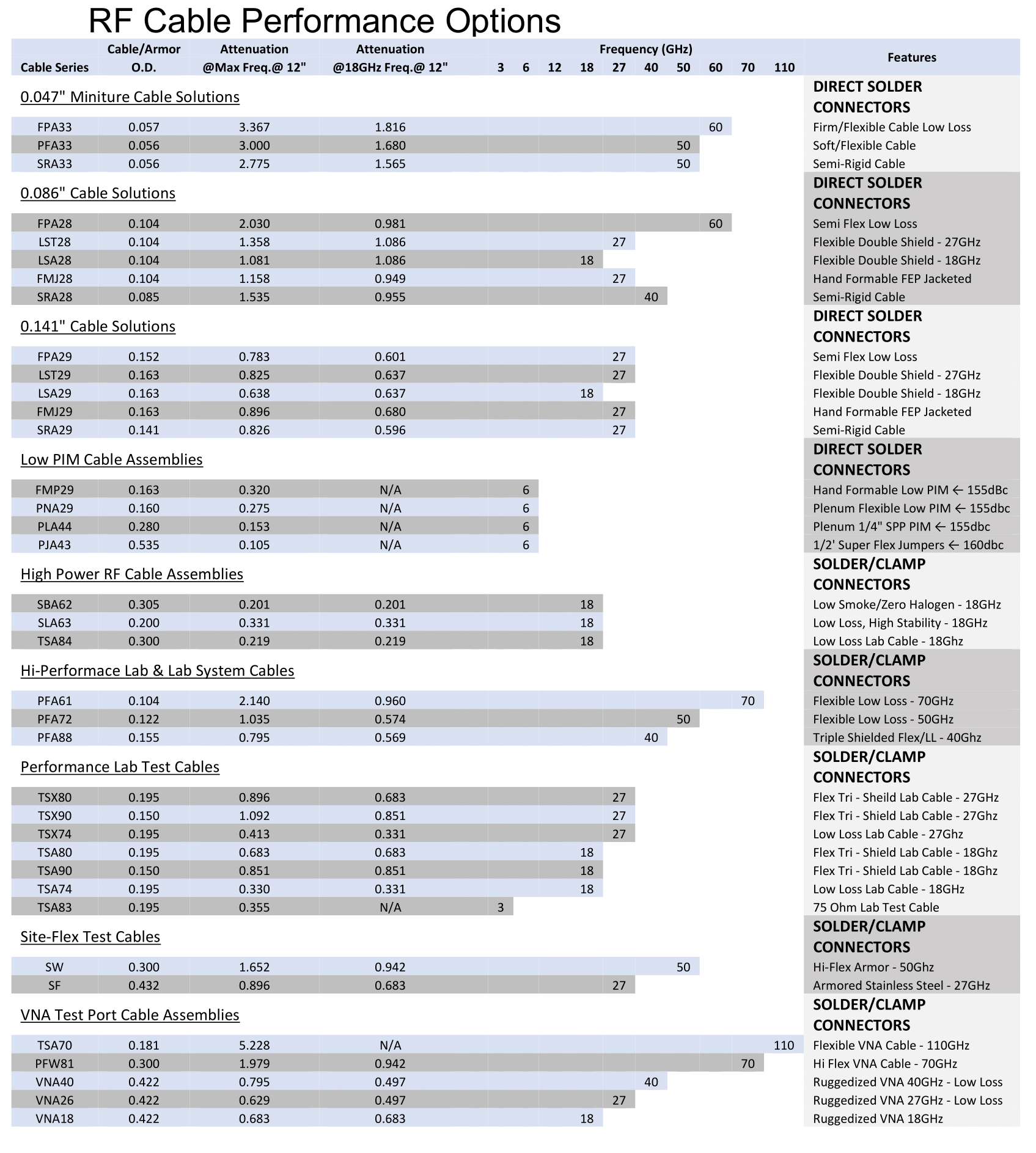RF Cables
Engineered to transmit high-frequency signals with minimal loss, RF cables are critical components in ensuring efficient signal transmission across RF systems. Whether used in lab testing, field deployments, or integrated system designs, these cables help maintain signal integrity over varying distances and environmental conditions.
RF Cables by MCV
MCV RF cables are designed for high-performance signal transmission across a wide frequency spectrum. Built with low-loss dielectric materials and precision shielding, our cables ensure excellent electrical performance, flexibility, and durability. Available in multiple configurations and lengths—with compatible connectors such as SMA, N-Type, TNC, and 2.92mm—MCV RF cables are ideal for applications in telecommunications, defense, wireless infrastructure, and test and measurement environments. Engineered to withstand rugged conditions, MCV cables deliver reliable connectivity wherever consistent signal quality is essential.

FAQ about RF Cables
What are RF cables used for?
RF cables are designed to transmit radio frequency signals between components in systems such as wireless infrastructure, communications, test equipment, and broadcasting. They are essential for maintaining signal integrity and minimizing loss across varying distances.
How do I choose the right RF cable for my application?
Key factors to consider include frequency range, insertion loss, power handling, cable length, connector type, and environmental durability. For high-frequency or long-distance applications, low-loss cables are typically preferred.
What types of connectors are available for RF cables?
RF cables can be terminated with various connectors such as SMA, N-Type, TNC, BNC, and 2.92mm, depending on system compatibility and frequency requirements.
What’s the difference between flexible, semi-rigid, and conformable RF cables?
Flexible cables offer versatility and easy routing, semi-rigid cables provide stable performance with fixed routing, and conformable cables offer a balance between rigidity and flexibility, often used for prototyping.
How does cable length affect RF performance?
Longer cables generally result in higher insertion loss, which can degrade signal strength. It’s important to select a cable type and length that balances flexibility with acceptable signal attenuation.
How can I order RF cable from MCV Microwave?
To place an order for RF cable please contact us and we will help you!

